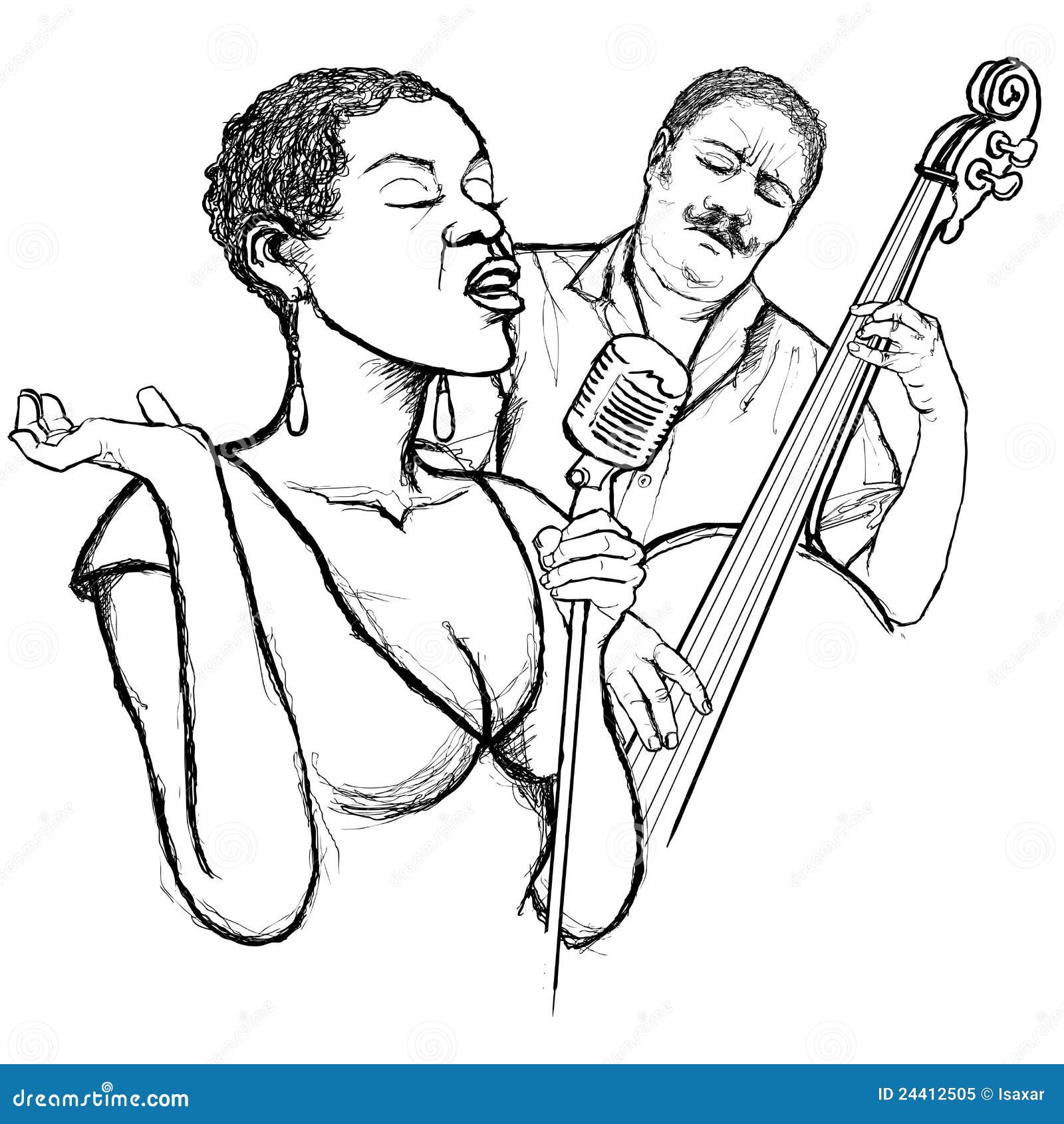Each chorister/singer needs to realize what his/her voice type is, yet it’s not generally so natural to make sense of the specifics. Keep reading on to figure out how to discover what your specific voice type is.
We will be discussing on how to know if you belong to any of this type of voices listed below as a Chorister/Singer. First of all, here are the types of voices to help you know what your voice type is.
Type of Voices:
- Soprano
- Mezzo-soprano
- Contralto (otherwise known as Alto)
- Countertenor
- Tenor
- Baritone and
- Bass

Qualities – variables in determining voice type
Making sense of your voice type is not just a matter of taking a gander at your vocal range to know how high you can pitch or what most choristers do these days, it goes beyond that. They are various diverse qualities you need to possess for any voice type.
For instance, there is always trouble finding out the difference between sopranos and mezzo-sopranos; they may have a similar range however mezzo-sopranos have a lower tessitura and darker timbre. More on that later………
All together your voice type is an after-effect of the accompanying vocal factors:
- Range – how high you can pitch
- Weight – light voices, brilliant and dexterous; substantial voices, intense, rich, and darker
- Tessitura – some portion of the range which is most suitable and stress-free to sing
- Timbre – unique voice quality and surface
- Transition points – focuses on points where you change from chest, to middle, to head register
- Vocal registers – how developed each register is
- Speech level – talking voice or speaking range
- Physical qualities
I realize that you’re presumably astonished at the way that ‘physical qualities‘ assume a part in choosing some person’s voice type. This is on the grounds that in most occasions the physique determines what parts musical show vocalists will try out for.
Category – voice types by range and tessitura
In the event that you sing in a choir or take voice lessons, you have most likely as of now been named a soprano, mezzo-soprano, or contralto (alto) in the event that you are a lady, and a countertenor, tenor, baritone, or bass on the off chance that you are a male. In fact, a typical choir in Nigeria has only four categories which is Soprano, Alto, Tenor and Bass; every other category of voice type falls in these four categories. Be that as it may, would you say you are truly certain you’ve been characterized effectively? Test your voice as indicated by the the following details:
1. Soprano

Soprano voice type: Chest, Middle & Head registers
Voice type – Soprano, Range: B3 – G6 keys
Soprano is the most astounding female voice type. There are many types of sopranos like the coloratura soprano, verse soprano, the soubrette etc which vary in vocal dexterity, vocal weight, timbre, and voice quality; I will discuss them in an up and coming article. The various type of the sopranos have in like manner the capacity to sing higher notes effortlessly.
A typical soprano can vocalize B3 to C6 keys, however a soprano coloratura can sing a great deal higher than that: achieving F6, G6 and so forth. Now I might want to expose a myth. It is broadly felt that the higher a vocalist can sing, the better the chorister/singer is. This couldn’t be further from the truth as range is defined by our physique and size of the vocal cords, not how proficient we are.

2. Mezzo-Soprano

Mezzo-Soprano voice type: Chest, Middle & Head registers
Voice type – Mezzo-Soprano, Range: G3 – A5
Mezzo-Soprano is the second most astounding female voice type. In a choir, a mezzo-soprano will more often than not sing along with the sopranos and not the altos and will be given the title of Soprano II (aka Alto turned Soprano). At the point when the sopranos part down the middle, she will sing the lower song as her timbre is darker and tessitura lower than the sopranos.
Despite the fact that in the musical drama mezzo-sopranos regularly hold supporting parts and pant parts, i.e. male parts, there are striking special cases like those of Carmen and Rosina in The Barber of Seville, where the diva is a mezzo-soprano. A run of the mill mezzo-soprano can vocalize from G3 to A5, though, some can’t sing as high and some can sing as high as a typical soprano that is why most choirs or choirmasters group them as general sopranos in Nigeria choirs.
3. Alto (Contralto)

Alto (Contralto) voice type: Chest, Middle & Head registers
Voice Type: Alto (Contralto), Range: E3 to F5
Contralto is the most reduced female voice type. In a choir, contralto’s are generally known to sing the supporting melody to the sopranos. This doesn’t imply that altos are not as critical in the choir; in fact, a choirmaster once told me:
If there is no alto singing a song; the song would be “dry”, because they (altos) have a sweet voice.
A contralto is relied upon to have the capacity to vocalize from E3 to F5 notes/keys, be that as it may, the lower her tessitura, the more profitable she is. I have the delight to know a young Alto singer that can sing from C3 to F6!
Now, I might want to note something about altos and choirs. I have seen a number of ladies who have been delegated altos in their choir, however their voice type is truly that of a mezzo-soprano or even soprano. Choirmasters in some choirs are not doing a good job in voice categorization that is why this website is up to make you know your voice type without your choirmaster in the choir.
From what I have come to acknowledge also, many choirmasters as opposed to investing energy to work with ladies who sing off tune, they choose to make them chime in the altos suspecting that their false singing will mix in. This practice can be extremely inconvenient, particularly for young ladies who strain their voices to sing lower than they can, and can create irreversible harm. But, that you sing alto in your choir and you feel that you are driving yourself to achieve the low notes of your melodic line, talk with your choir master or whomsoever is in charge to categorization of voice types and ask him/her to consider renaming you as a soprano. The choirmaster won’t not be upset to do such, as choirs more often than not have a greater number of sopranos than altos, however demand that they in any event test you out.
Countertenor

Contertenor voice type: Chest, Middle & Head registers
Do you think that you are a countertenor singer, I will be posting later how to know if you are really a countertenor. Stay tuned. subscribe below to get a notification when the post in online
[wysija_form id=”1″]
Voice Type – Countertenor range: G3 to C6
Countertenor is the rarest of all voice type, you can hardly find them in a choir, especially in Nigeria choirs. A countertenor is a male vocalist/chorister who can sing as high as a soprano or mezzo-soprano using characteristic head reverberation.
Tenor

Tenor voice type: Chest, Middle & Head registers
Voice Type: Tenor, Range: C3 – B4
Tenor is the most astounding male voice type you will discover in a regular choir. In spite of the fact that it is the voice type with a little range, it scarcely covers 2 octaves from C3 to B4, tenors are the most looked-for choristers for two noteworthy reasons. The principal reason is that there aren’t much men singing in choirs in the first place. The second reason is that most men, artists or not, fall under the baritone voice type. Before you can find a good tenor singer, it will be like going ‘through the eye of a needle’.
A true tenor has a high tessitura, above the middle C4, and uses a blend of head resonance and falsetto, as opposed to falsetto alone.
Numerous a baritone will attempt to utilize this system to arrange as tenor and some will be fruitful; you’ll know their identity on account of their red countenances when attempting to sing the high notes in the tenor melodic line. I have one somewhere in St. Kizito Parish Choir, infact, he is the Choirmaster but he runs away from high tunes because he is more or less a Baritone singer.
Baritone

Baritone voice type: Chest, Middle & Head registers
Voice Type: Baritone, Range: G2 – G4
Baritone is the most well-known male voice type. Despite the fact that normal, baritone is not in any manner conventional. Despite what might be expected, the weight and energy of his voice, give the baritone an exceptionally manly feel, something that in the musical drama has been utilized as a part of parts of commanders and, most prominently, aristocrats. Great male singer often fall into the Baritone voice type.
In a choir, a baritone will never find out about the particulars of his voice, since he should sing either with the tenors or the basses. Most baritones with a high tessitura sing with the tenors, and individually, the ones with a lower tessitura sing with the basses. Their range is anyplace between a G2 and a G4 however can reach out in any case.
On the off chance that you sing tenor and can’t achieve the higher notes effortlessly, or sing bass and can’t achieve the lower notes actually, you’re most presumably a baritone and you shouldn’t stress over it. Give your fellow choristers assist.
Bass

Bass voice type: Chest, Middle & Head registers
Voice Type: Bass, Range: D2 – E4
Bass is the least male voice type, and in this manner a bass sings the most minimal notes humanly conceivable. I tend to think about the profound bass notes as tantamount to those of a violoncello, however some alluring basses can hit notes lower than those of a cello. A bass will be made a request to sing anyplace between a D2 and an E4. A cello’s most reduced note is a C2.
Just with every extreme, it’s really hard to find true basses and it’s almost impossible in the younger ages where the male bodies are still developing.

In spite of the fact that in a choir basses may have rather monotone melodic lines, in the musical drama they have an awesome scope of parts to look over. Basses are regarded as the backgorund singer in a choir setting. Most songs depend on the Bass chorister to mar or make it.
Since you have learnt about the classes of voice types, I’m certain you’ll need to know how to recognize why you fall in these categories. Do you know the distinction between a verse soprano and an emotional soprano or a leggero tenor and a spinto tenor? How might you tell which one you are?
We will be breaking down all voice types into their sub-voices in our subsequent posts. Stay tuned to our newsletter by adding your e-mail below. See you soon.


Thanks for this…
We are here to serve. Thanks for visiting, hope to see you again.
Don’t forget to tell someone about Choirscript.
Cheers.
U are doing a great job dear. God blesses you
Nice thank